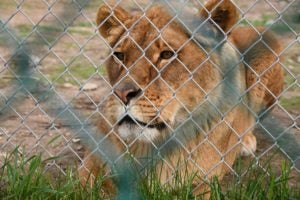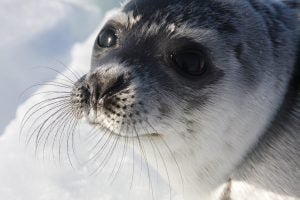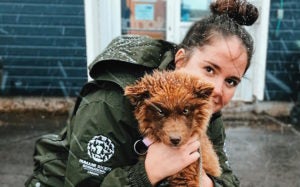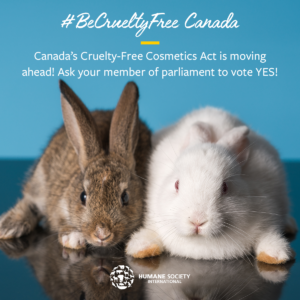
OTTAWA – Canada has passed legislation that bans keeping whales, dolphins and porpoises in captivity for entertainment, as well as the trade, possession, capture and breeding of cetaceans. Today, the House of Commons voted overwhelmingly in favour of Bill S-203, the Ending the Captivity of Whales and Dolphins Act.
Bill S-203 was introduced by Senator Wilfred Moore in 2015, and then sponsored by Senator Murray Sinclair. Upon passage through the Senate, it was championed by Green Party Leader Elizabeth May in the House of Commons.
Rebecca Aldworth, Executive Director of HSI/Canada stated: “The passage of Bill S-203 is a watershed moment in the protection of marine animals and a victory for all Canadians. Whales and dolphins don’t belong in tanks, and the inherent suffering these highly social and intelligent animals endure in intensive confinement can no longer be tolerated. We congratulate the sponsors of this bill and the Canadian government for showing strong leadership in responding to public will and sound science on this critical issue.”
Green Party Leader and Saanich – Gulf Islands MP Elizabeth May stated, “Canadians have been clear, they want the cruel practice of keeping whales and dolphins in captivity to end. With the passage of Bill S-203, we have ensured that this will happen.”
Bill sponsor Senator Wilfred Moore said, “We have a moral obligation to phase out the capture and retention of animals for profit and entertainment. Canadians are calling upon us to do better – and we have listened.”
Leading marine scientist Hal Whitehead added, “The living conditions for captive marine mammals cannot compare to their natural ocean environments in size, nor in quality. We thank the federal government and all those involved in the passage of Bill S-203, so that our laws can finally align with the Canadian peoples’ values and end this cruel practice.”
HSI is at the forefront of a global movement to end the captivity of cetaceans for entertainment. HSI/Canada has been a central part of a broad coalition of key stakeholders, including organizations, scientists and parliamentarians, working to ensure the passage of Bill S-203.
Facts:
- A coalition of over 20 leading marine scientists and stakeholder organizations have endorsed Bill S-203. Bill S-203 was supported by Humane Society International/Canada, Animal Justice, Humane Canada, marine scientists Dr. Lori Marino and Dr. Naomi Rose of the Whale Sanctuary Project, Ontario Captive Animal Watch, Phil Demers, the former head trainer at Marineland, World Animal Protection, Dr. David Suzuki, the Jane Goodall Institute, and more.
- Bill S-203 phases out the captivity of cetaceans (i.e. whales, dolphins and porpoises) in Canada, except for rescues, rehabilitation, licensed scientific research, or cetaceans’ best interests.
- Leading marine scientists agree that whales and dolphins suffer great psychological and physical harms in captivity, including isolation, chronic health problems, abnormal behaviour, high infant mortality and extreme boredom.
- Currently, only two facilities in the country house cetaceans – the Vancouver Aquarium, and Marineland in Niagara Falls. Now, these facilities will no longer be able to breed or import any new cetaceans into their facilities.
- We thank the key Parliamentarians and staffers who championed and sponsored this legislation: MP Elizabeth May, Senator Wilfred Moore, Senator Murray Sinclair, MP Fin Donnelly, MP Gord Johns, Senator Peter Harder, Senator Dan Christmas, MP Nathan Cullen, MP Sean Casey, MP Nathaniel Erskine-Smith, MP Mario Beaulieu, MP Monique Pauzé, MP Nick Whalen, MP Will Amos, Senator Elizabeth Hubley, Senator Janis Johnson, Senator Mary Jane McCallum, Steve Parkinson, Martin McKendry, Archie Campbell, and many more.
Media Contact: Christopher Paré, Director of Communications – o: 514-395-2914 x 206, c: 438-402-0643, email: cpare@hsi.org
Humane Society International/Canada is a leading force for animal protection, with active programs in companion animals, wildlife and habitat protection, marine mammal preservation, farm animal welfare and animals in research. HSI/Canada is proud to be a part of Humane Society International which, together with its partners, constitutes one of the world’s largest animal protection organizations. Celebrating animals and confronting cruelty worldwide – on the Web at www.hsicanada.ca




